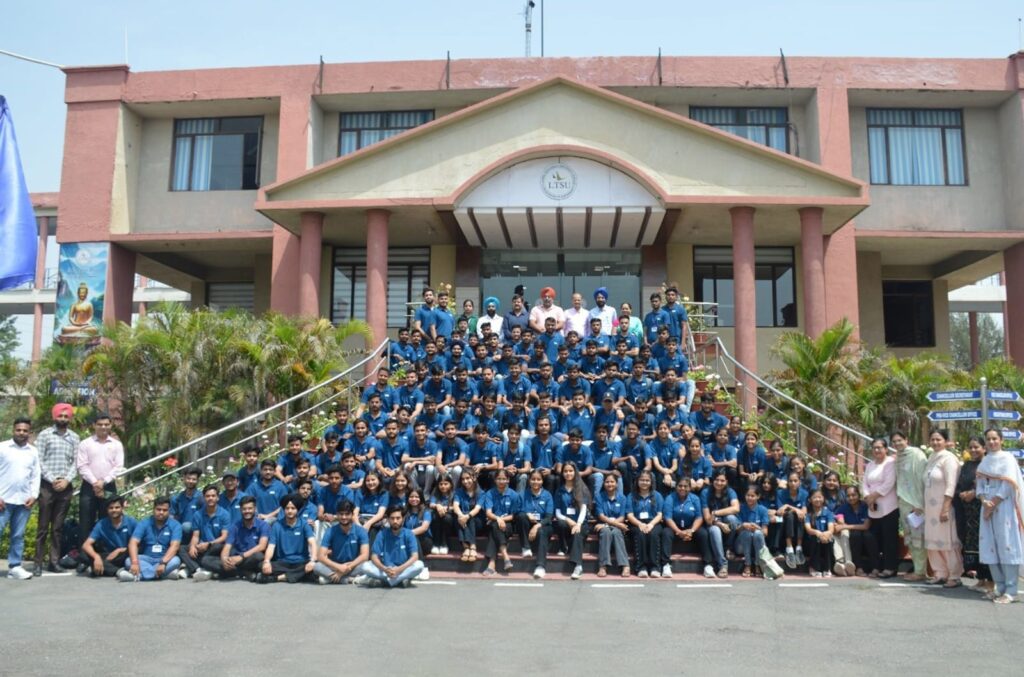Artificial Intelligence (AI) is reshaping industries and revolutionizing the job market, making it an attractive field for aspiring engineers. Pursuing a B.Tech in AI Engineering in India in 2025 offers significant advantages due to the growing demand for AI professionals, transformative industry trends, and promising career opportunities. Below are key reasons why this field is worth exploring:
1. High Demand for AI Professionals
The AI market in India is projected to reach USD 7.8 billion by 2025, reflecting immense growth potential. AI roles such as Machine Learning Engineers, Data Scientists, and AI Researchers are among the fastest-growing job titles globally.
- Entry-level salaries for B.Tech AI graduates range between ₹5–15 lakhs per annum.
- Experienced professionals can earn up to ₹50 lakhs annually in major cities like Delhi, Mumbai, and Bangalore.
2. Diverse Career Opportunities
Graduates can pursue lucrative roles such as:
- Data Scientist: Analyzing complex datasets to extract insights.
- AI Engineer/Researcher: Innovating and advancing AI technologies.
- Machine Learning Engineer: Designing algorithms for intelligent systems.
- Robotics Engineer: Developing software and hardware for robotics applications.
These roles span industries like healthcare, finance, retail, and manufacturing, ensuring a wide range of career options.
3. Industry Transformation
Indian companies are increasingly integrating AI across various sectors:
- Healthcare: AI-powered diagnostics and personalized medicine.
- Agriculture: Precision farming using AI-based analytics.
- Education: Adaptive learning platforms tailored to individual students.
- Finance: Fraud detection and automated financial advisory services.
Over 70% of Indian organizations are expected to integrate AI technologies by 2025, highlighting widespread industry adoption.
4. Government Support and Ecosystem Growth
The Indian government is actively fostering AI innovation through initiatives like Digital India and the National AI Strategy. These efforts are creating a robust ecosystem of startups and research centers.
- India has over 1,000 AI-focused startups, addressing critical societal challenges.
- Government-backed programs provide funding, mentorship, and research opportunities for AI enthusiasts.
5. Future-Proof Skills
AI professionals are equipped with sustainable skills that align with the digital era’s demands.
- By 2025, over 100 million new jobs requiring advanced AI skills will be created in India.
- AI expertise is becoming an essential asset across industries, ensuring long-term career stability and growth.
6. Cutting-edge Trends
Emerging AI-powered technologies are revolutionizing industries, with Generative AI (GenAI), deep learning, and natural language processing (NLP) enhancing efficiency and innovation.
- Cybersecurity: AI-driven threat detection and mitigation.
- Supply Chain Management: AI-enabled logistics optimization and predictive analytics.

Conclusion
Pursuing a B.Tech in AI Engineering in India in 2025 is a strategic and future-proof career choice. The field offers a booming job market, diverse industry applications, government support, and transformative technological advancements. AI engineering provides financial rewards, global career opportunities, and the chance to shape the future of technology.
For aspiring engineers, this is the perfect time to enter the world of AI and become part of India’s AI revolution.
Prof. Dr. H S Dhami
Executive Dean University School of Engineering & Technology
Lamrin Tech Skills University Punjab, Ropar

